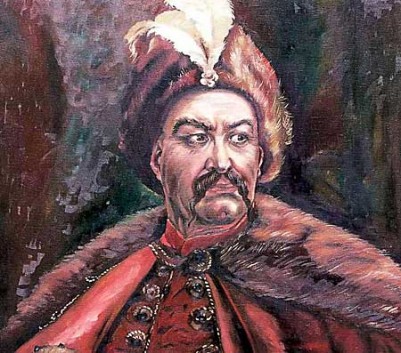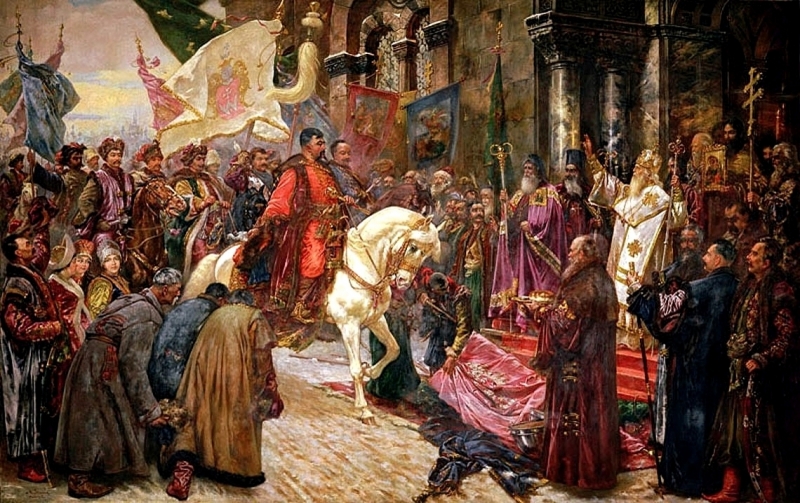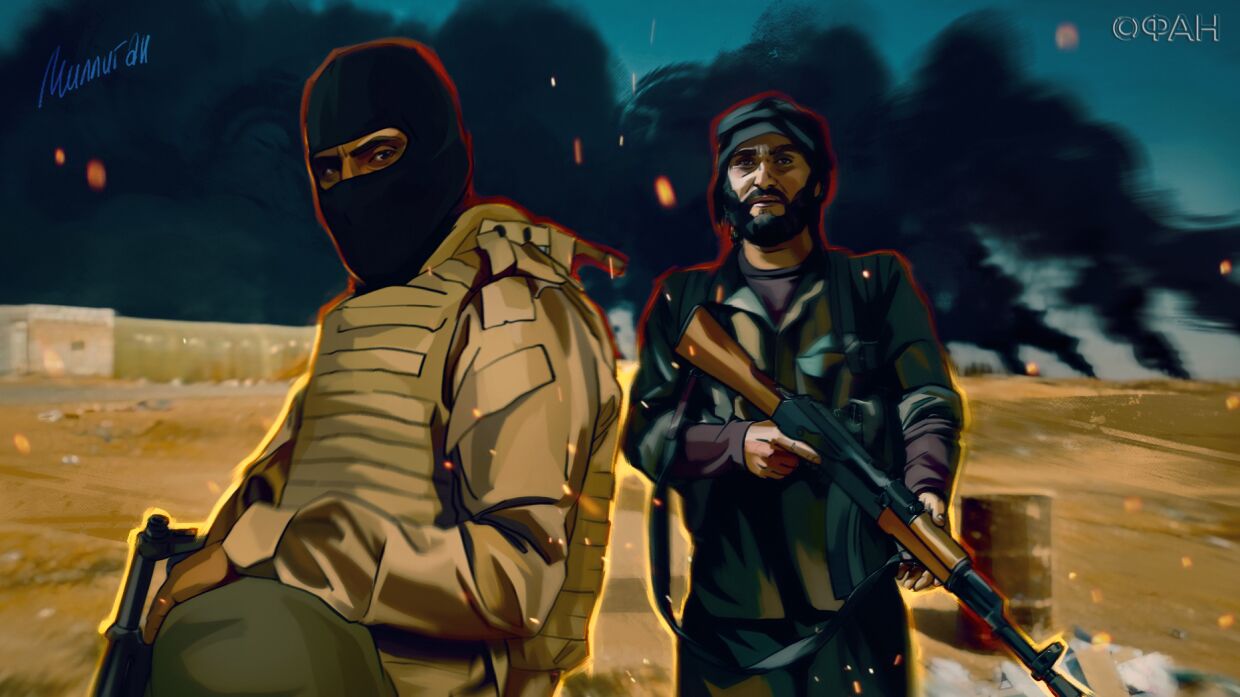
Bohdan KhmelnytskyBy late summer, 1648 , the Polish tycoon Vishnevetskii assembled significant forces and sent them to the suppression of the uprising of Bohdan Khmelnytsky. Commonwealth troops led by nobles D. Zaslavsky, A. Konetspolsky and H. Ostrorog. Coming to the river Pilyavke, Vishnevetskii his party centurions located in a separate camp. Towards the Polish troops were regiments B. Khmelnitsky, by allying to itself the numerous peasant detachments. Cossack and peasant army located at the town Pilyavtsy, also on the banks of the river Pilyavka. Khmelnitsky called for help Tatars. To gain time, he began negotiations with the Zaslavsky, offering a peaceful way to settle all disputes. The consequence of wise policy Khmelnytsky was a complete break with Vishnevetzkogo Zaslavsky. Polish camp Zaslavsky from the Cossack and peasant troops separated the marshy, very boggy valley of a small river Pilyavki. The opposite bank of the valley connected the dam, for which retention in their hands Khmelnitsky sent forward a detachment of Cossacks, entrenched trench on the outskirts of this dam. The Polish army rear position, as in the battle of Korsun, a detachment was sent to M. Krivonosa. Hiking and equestrian Cossack with musket 11 September 1648 Year scattered along the banks of Pilyavki, as soon as noticed movement on the side of the enemy. Three Polish gentry detachment marched to the river. One of them found a ford above the dam and tied here skirmish with the Cossacks, not admitted crossing the river. The second unit pushed the Cossacks, defending the approaches to the dam. The third detachment crossed the river below the dam. Gentry demanded common attack Pilyavetskogo castle, where the Khmelnitsky. But with the onset of the battle subsided darkness. 12 September Cossacks recaptured ford, by which on the eve of Polish troops crossed the river, and strengthened the approaches to it shaft. Evening nobles heard a noise in the Cossack camp, where they are beating tambourines, fired arquebuses and cannons, shouting "Allah!». Captured at night showed a prisoner, that in Khmelnitsky came to the rescue in the Tatar cavalry 40 thousands of people. This post has been made on the gentry demoralizing effect. In fact, it arrived only about 3 thousand. Crimeans. 13 September morning, in dense fog, He marched to the river Tatars squad, and the dam went Cossacks and attacked the enemy in the trenches. A fight broke out, unified leadership which was lost. Detachment of Cossacks began pre-specified, feigned retreat of the dam. Followed immediately rushed nobles, thinking, that pursue a broken enemy. The Poles crossing point Cossacks struck them from the flanks and rear. The panic began, quickly spread throughout the army. Panic intensified actions of the detachment M. Krivonosa, actively disturb the Poles from the rear. At night, all the Polish forces of the two camps ran, pobrosav convoy, weapon, artillery.

Entry of Bogdan Khmelnitsky in Kiev.Picture of Nicholas Ivasyuka, the end of the XIX century
The Polish army has ceased to exist as an organized force, and the Cossacks got countless values. According to witnesses, injury reasons were "luxury, ambition, strife and jealousy ". And when it became clear, that the battle is lost, most of the commanders was not thinking about, how to organize a retreat, and that, how to take their personal belongings, thereby completely demoralized army. Weak cohesion of the Polish troops, who did not want to help each other, compounded by the lack of coordination between commanders, and I do not think a united front. Envy and ambition mediocre generals allowed to become commander of the authoritative Jeremiah Vishnevetsky - instead, the army led a crowd of Commissioners, each of which makes its own decisions.
morning 14 September 1648 the Cossacks took the enemy's camp, Khmelnitsky and immediately organized persecution. Many nobles died in the river Sluch, where under the weight of the fugitives broke off bridge. As a result of the defeat of the rebels captured Poles 92 guns and a huge convoy. the way was opened for an attack on West, Lvov. Besides, the battle was of great psychological importance, since he fled from the battlefield crowning Commonwealth troops. It is also necessary to underline, that ran ahead of the army leadership - Zaslavsky, Ostrorog, Konetspolsky, Vishnevetskii and other. Khmelnitsky and Tatars initially decided, that the rapid retreat - part of a cunning plan of the enemy, and therefore not to prosecute. Only with time the allies were convinced, that such a plan does not exist, and their amazing, incredibly lucky.
The loss of the Polish forces were relatively small for such a defeat - lost almost all infantry (to 8 000 human) and unknown (apparently, small) the number of cavalry. Cossacks losses were insignificant and did. The rebels seized to eighty guns, Tens of thousands of firearms, as well as Polish kleinods all levels.
Battle of pyliavtsi was one of the largest battles of the late Middle Ages, and possibly, and Modern Times, after all 1648 year, the eve of the English Revolution, Peace of Westphalia (24 October 1648 of the year), many historians propose to close the era of the Middle Ages. this date, undoubtedly, suspended, For many remnants of the Middle Ages, age beautiful and brutal, tragic and heroic, despite the name, survived to the present day, squeezed them together with the words of the common good and tireless care power reined itself.
Pilyavetskaya battle was a triumph for the Khmelnitsky, finest hour, comparable to Napoleon's victory at Austerlitz. The myth of the military power of the Commonwealth was finally dispelled, and now the Poles in the Cossack camp was not afraid of anyone.Gabriel Tsobehiya












The Napoleonic victory at Austerlitz taught Alexander I to take Napoleon seriously, and not as an upstart and changed the whole strategy of Russia. Russians learned a lesson.